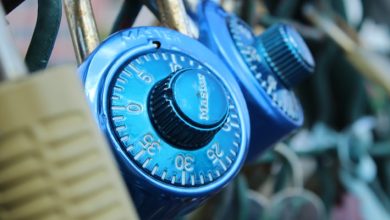What Are Paper Wallets, and Are They Safe?

- Understanding Paper Wallets: A Beginner’s Guide
- The Risks and Benefits of Using Paper Wallets
- How to Create and Store Paper Wallets Securely
- Are Paper Wallets a Safe Option for Storing Cryptocurrency?
- Comparing Paper Wallets to Hardware Wallets: Which Is Safer?
- Tips for Keeping Your Paper Wallet Secure
Understanding Paper Wallets: A Beginner’s Guide
Paper wallets are a type of cold wallet that allows users to store their cryptocurrency offline on a physical piece of paper. They are considered a secure way to store cryptocurrency because they are not connected to the internet, making them less vulnerable to hacking. However, it is essential to understand how paper wallets work and how to use them correctly to ensure the safety of your funds.
When creating a paper wallet, a user generates a pair of cryptographic keys – a public key for receiving funds and a private key for spending them. The private key is typically printed in the form of a QR code, which can be scanned when you want to access your funds. It is crucial to keep your private key secure and never share it with anyone to prevent unauthorized access to your cryptocurrency.
Using a paper wallet involves transferring cryptocurrency from an online wallet or exchange to the public address on the paper wallet. To make a transaction, you would need to import your private key into a digital wallet to sign the transaction. Once the transaction is signed, you can broadcast it to the network and wait for it to be confirmed.
The Risks and Benefits of Using Paper Wallets
When considering the use of paper wallets for storing cryptocurrency, it is important to weigh the risks and benefits associated with this method. Like any form of storage, paper wallets have their own set of advantages and disadvantages that users should be aware of.
- One of the main benefits of using a paper wallet is that it is considered offline storage, meaning it is not connected to the internet and therefore less susceptible to hacking or cyber attacks.
- Additionally, paper wallets are relatively easy to create and can be generated securely using a computer that has never been connected to the internet.
- On the other hand, one of the main risks of using a paper wallet is the possibility of physical damage or loss. Unlike digital wallets that can be accessed from anywhere with an internet connection, paper wallets must be kept safe and secure in a physical location.
- Another risk to consider is the lack of redundancy with paper wallets. If a paper wallet is lost or damaged, there may be no way to recover the funds stored on it.
Ultimately, the decision to use a paper wallet should be based on individual preferences and risk tolerance. Some users may feel more comfortable with the added security of offline storage, while others may prefer the convenience and accessibility of digital wallets. It is important to weigh the risks and benefits carefully before deciding on the best storage solution for your cryptocurrency.
How to Create and Store Paper Wallets Securely
Creating and storing paper wallets securely is crucial to safeguarding your cryptocurrency assets. Follow these steps to ensure your paper wallets are safe from potential threats:
1. Generate the paper wallet offline to prevent any exposure to the internet, decreasing the risk of hacking or unauthorized access to your funds. Use a reliable paper wallet generator to create your wallet.
2. Print multiple copies of your paper wallet to have backups in case one copy gets lost or damaged. Store these copies in separate secure locations to minimize the risk of losing access to your funds.
3. Keep your paper wallet away from moisture and direct sunlight to prevent any damage to the paper or ink. Consider laminating your paper wallet for added protection against wear and tear.
4. Avoid storing your paper wallet in easily accessible or visible locations to reduce the risk of theft. Instead, opt for secure and discreet storage options such as a safe deposit box or a home safe.
5. Do not share the private key associated with your paper wallet with anyone to maintain the security of your funds. Keep this key confidential and only disclose it when necessary to access your cryptocurrency assets.
By following these steps, you can create and store paper wallets securely, ensuring the safety of your cryptocurrency holdings for the long term. Remember to regularly check on the condition of your paper wallets and update your backups as needed to maintain their security.
Are Paper Wallets a Safe Option for Storing Cryptocurrency?
When it comes to storing cryptocurrency, many people wonder if paper wallets are a secure option. While paper wallets can be a safe choice for keeping your digital assets offline and away from potential hackers, there are some risks to consider.
One of the main advantages of using a paper wallet is that it is not connected to the internet, making it less vulnerable to cyber attacks. By generating a paper wallet offline and storing it in a secure location, you can have peace of mind knowing that your cryptocurrency is safe from online threats.
However, it’s essential to be cautious when creating and using paper wallets. If you make any mistakes during the generation process, such as using an insecure printer or failing to store the wallet securely, you could risk losing your funds. Additionally, paper can degrade over time, potentially leading to the loss of the private keys needed to access your cryptocurrency.
To mitigate these risks, it’s crucial to follow best practices when creating and storing a paper wallet. This includes using a secure computer and printer, creating multiple copies of the wallet, and storing them in separate, secure locations. By taking these precautions, you can use a paper wallet as a safe option for storing your cryptocurrency.
Comparing Paper Wallets to Hardware Wallets: Which Is Safer?
When it comes to comparing paper wallets to hardware wallets, the main question that arises is which option is safer for storing your cryptocurrency assets. Both paper wallets and hardware wallets have their own set of advantages and disadvantages that need to be taken into consideration.
Hardware wallets are physical devices that store your private keys offline, making them less vulnerable to hacking attacks compared to online wallets. They usually come with additional security features such as PIN protection and encryption, providing an extra layer of security for your funds. However, hardware wallets can be expensive and may not be as convenient to use as paper wallets.
On the other hand, paper wallets are a form of cold storage where you print out your private keys and keep them in a secure place offline. While paper wallets are cost-effective and easy to create, they are more susceptible to physical damage, loss, or theft compared to hardware wallets. It is essential to store your paper wallet securely to prevent unauthorized access to your funds.
Ultimately, the choice between a paper wallet and a hardware wallet depends on your individual needs and preferences. If you prioritize security and are willing to invest in a hardware wallet, it may be the better option for safeguarding your cryptocurrencies. However, if you are looking for a more budget-friendly solution and are confident in your ability to store a paper wallet securely, then a paper wallet may be a suitable choice for you.
Tips for Keeping Your Paper Wallet Secure
When it comes to keeping your paper wallet secure, there are a few important tips to keep in mind. Follow these best practices to ensure that your cryptocurrency funds are safe:
- Store your paper wallet in a secure location, such as a safe deposit box or a home safe.
- Avoid storing your paper wallet in plain sight or in easily accessible areas.
- Consider making multiple copies of your paper wallet and storing them in different secure locations.
- Encrypt your paper wallet with a strong password to add an extra layer of security.
- Avoid sharing your paper wallet’s private key with anyone else.
By following these tips, you can help protect your cryptocurrency investment and keep your paper wallet secure.



